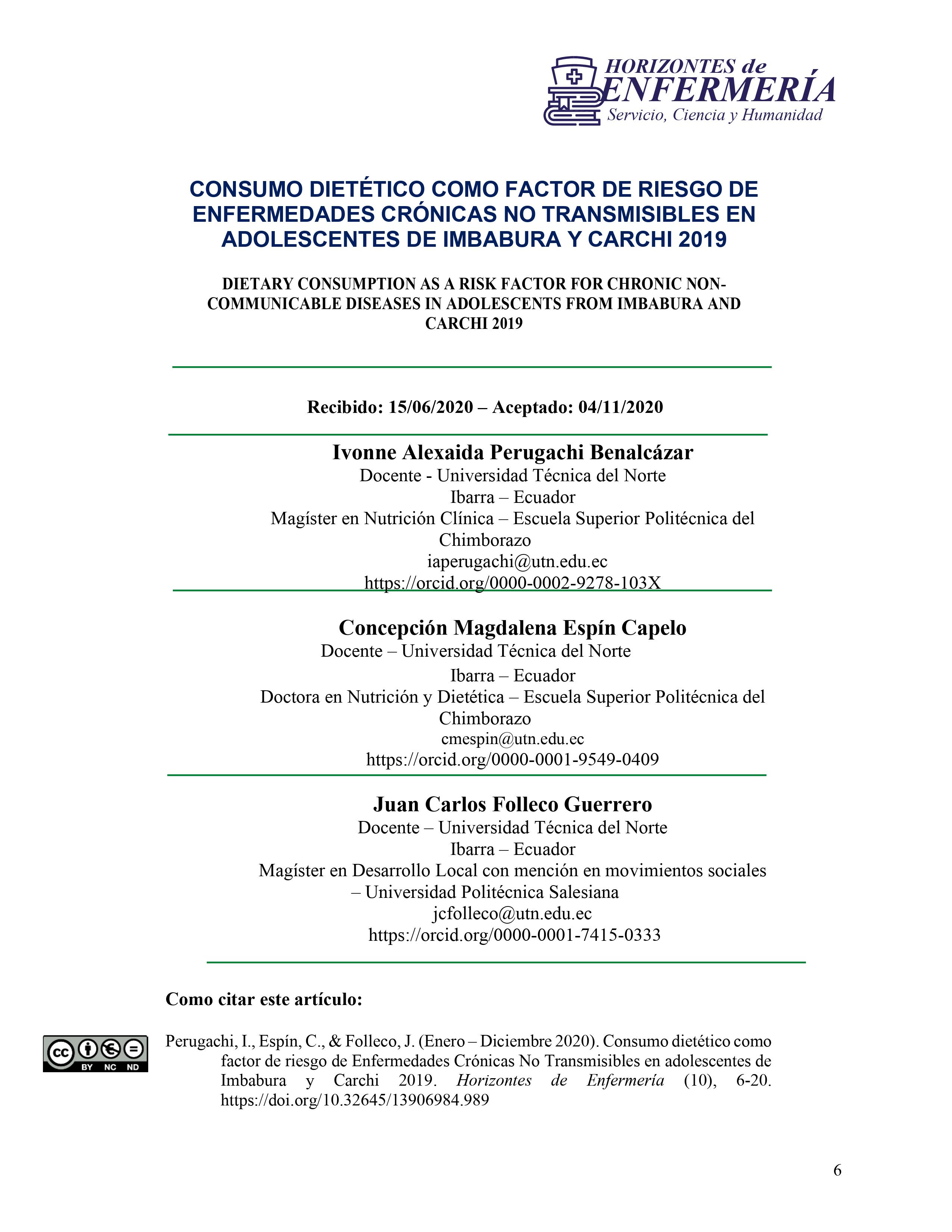Dietary consumption as a risk factor for chronic non-communicable diseases in adolescents from Imbabura and Carchi 2019
DOI:
https://doi.org/10.32645/13906984.989Keywords:
risk factor, CNCD, adolescents, food intakeAbstract
The aim of this research was to identify dietary intake as a risk factor for chronic non-communicable diseases in adolescents from Imbabura and Carchi. It was a quali-quantitative, descriptive, cross-sectional study; the study population was constituted by 420 adolescents aged 10 to 18 years, who decided to participate in the research through a consent signed by the parents. The techniques used were: a family history survey on CNCD and a food consumption survey; the data were processed in Epi Info 7. The main results found were: frequent consumption of highly energetic preparations, added salt, sugars, sugary drinks, sweets and salt, and processed foods, and a large number of adolescents with a family history of CNCD. Conclusions: The frequency of dietary consumption of highly energetic foods was identified as a risk factor for CNCD, which can translate into ignorance of healthy eating.

Downloads
Published
Issue
Section
License
Copyright (c) 2020 IVONNE ALEXAIDA PERUGACHI BENALCÁZAR , CONCEPCIÓN MAGDALENA ESPÍN CAPELO, JUAN CARLOS FOLLECO GUERRERO

This work is licensed under a Creative Commons Attribution-NonCommercial-ShareAlike 4.0 International License.
El autor mantiene los derechos morales e intelectuales de su obra, autorizando a la editoruial de la revista revista Horizontes de Enfermería ladifusión y la divulgación de su contenido con fines estrictamente académicos y de investigación, sin fines de lucro.





